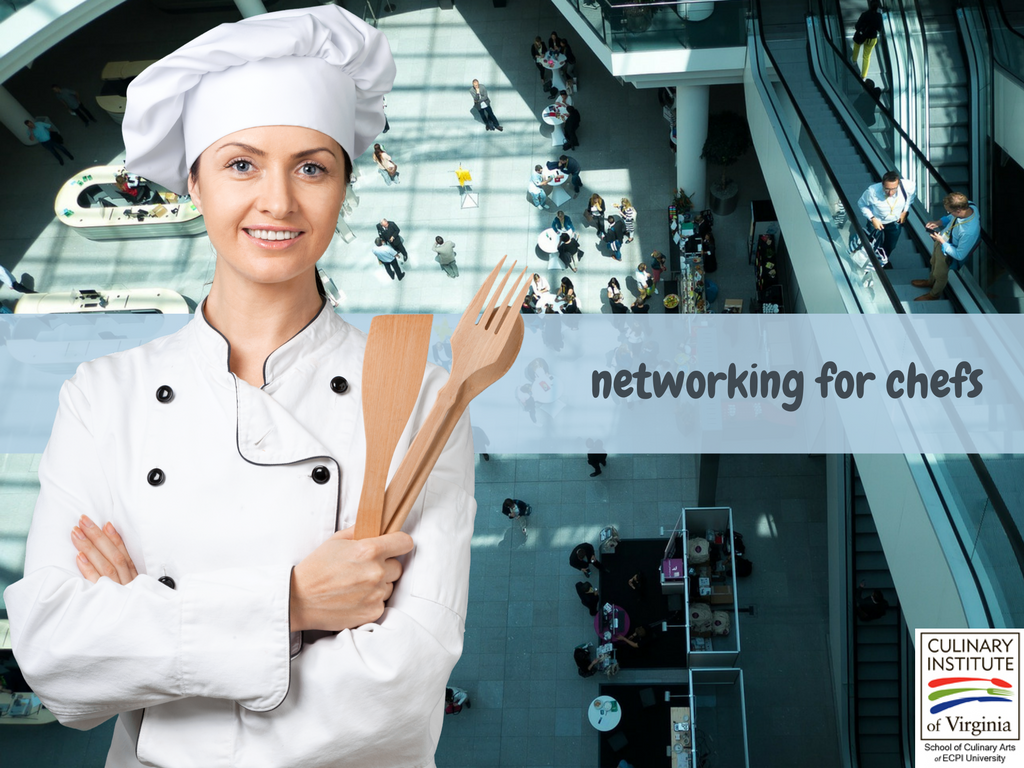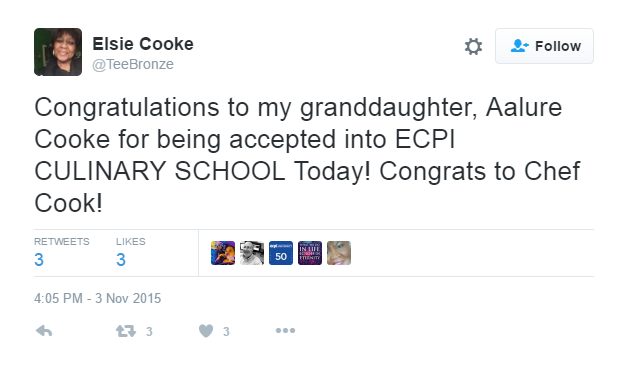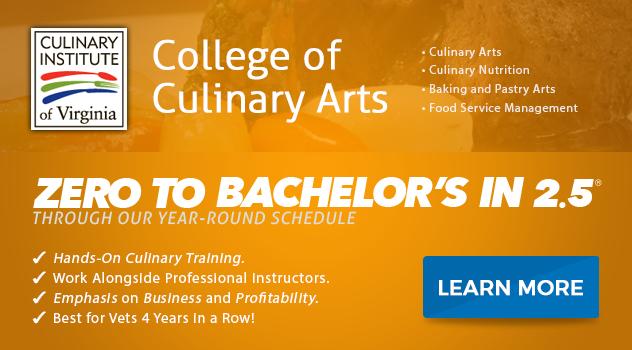Networking Opportunities for Culinary Students
It's not easy being a chef. Studies show that professional chefs have to deal with one of the highest levels of stress for any job on a daily basis. If that wasn't enough, it's also extremely difficult to land a dream job at a Michelin-starred restaurant. Most culinary students have to start small before working their way up to the big leagues.
So how can you personally make sure that your chances of landing a job at a good restaurant are as high as they can be? Effective networking is one of the main ways that members of the food and service industry are able to keep an eye out for new talent. The more people you meet who belong to restaurants and are able to impress with your knowledge of cooking, the better your chances of landing an exciting chef gig.
Networking Tips for Chefs
The following networking tips can help you get in front of the right people to further your career:
- Make sure your education is solid. A degree or diploma from a reputable school will help to show you know your stuff.
- Keep a stack of business cards ready and on your person in case you meet a prospective client out of the blue.
- Doing volunteer work as a chef can be a good way to advertise your skills while doing constructive work within the community.
- Don't be afraid of taking work at smaller restaurants in the beginning, since practical experience is essential for moving on to bigger work as a chef. Mail your resume and culinary certifications to restaurants you want to work at eventually, and request an interview or ask them to try a free sample of your food.
- There are several culinary certifications available that can help improve your value in the eyes of prospective employers.
- Remember that everyone you meet is a potential client, coworker, or employer. Be respectful and personable to everyone.
Professional Networking Organizations for Professional Chefs
Here are some organizations that have been created for the specific purpose of facilitating contact between members of the cooking community on a professional level:
Professional Chef's Association (PCA)
The Professional Chef's Association is the leading American culinary society. Founded in 1997, the association offers many perks and advantages to its members such as trade shows to display their wares, a certification course, a seal of approval that counts for a great deal in professional circles, and a consulting service for freelancers and businesses within the industry.
American Culinary Federation (ACF)
The American Culinary Federation was established in 1929 and is one of the largest organizations for professional chefs in America, boasting of more than 17,000 members as well as 150 chapters of the federation opened in various parts of the country. They offer certifications and the chance to appear in their publication, in addition to regular conventions and resources to help their members stay up to date on all the latest technologies and techniques in the culinary world.
Networking at Culinary Conventions
These do not belong to any one organization but are held by different companies and groups all over the country. Here are some tips for making the most of your visit to a culinary convention:
- Pack light and wear comfortable clothes and shoes, since you are going to spend several hours on your feet talking to potential clients and building rapport.
- Be aware of the layout of the convention space so you can ascertain where the important areas are that you need to be paying attention to.
- Don't try to do too much. Pay attention to each person you talk to instead of always being on the lookout for new faces.
- Have a clear idea of why you're at the convention and stick to the plan for promoting your skills or your business.
- Take a bunch of your business cards to the convention. Don't hand them out to just anyone, but always remember to end a conversation with a prospect by handing them your card.
- If you're handing out samples of your food, don't blow the whole sample on one party. Ration out the food and keep some backup dishes ready in case it seems you're running out.
- Try to get a booth somewhere in the middle of the area where you will be more visible and be able to accommodate more people.
- Get other people's contact information as well. Remember, you are not there just to hunt for jobs, but also to form genuine connections with like-minded people whose work you admire and whom you would wish to stay in touch with.
Are you interested in turning your love of cooking into a career? Start with an Associates of Applied Science in Culinary Arts at ECPI University's Culinary Institute of Virginia. Contact an admissions counselor today to see if this is the next step on your path to culinary mastery!
It could be the Best Decision You Ever Make!
DISCLAIMER – ECPI University makes no claim, warranty, or guarantee as to actual employability or earning potential to current, past or future students or graduates of any educational program we offer. The ECPI University website is published for informational purposes only. Every effort is made to ensure the accuracy of information contained on the ECPI.edu domain; however, no warranty of accuracy is made. No contractual rights, either expressed or implied, are created by its content.
Gainful Employment Information – Culinary Arts - Associate’s
For more information about ECPI University or any of our programs click here: http://www.ecpi.edu/ or http://ow.ly/Ca1ya.




